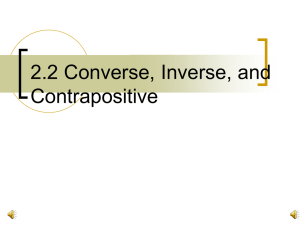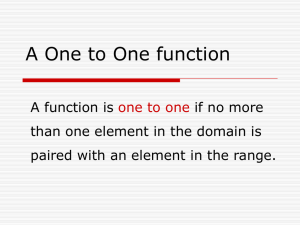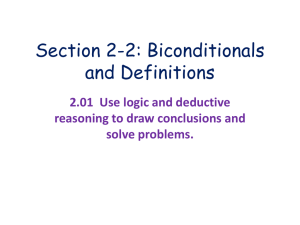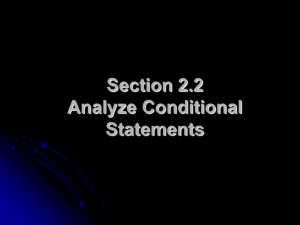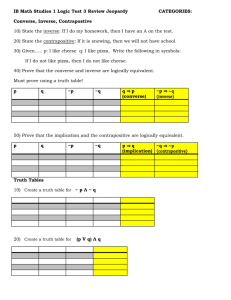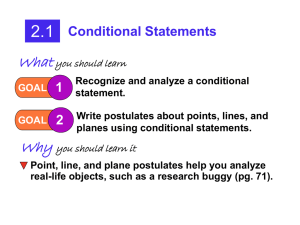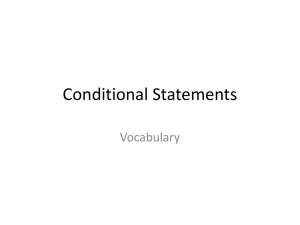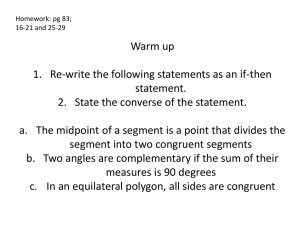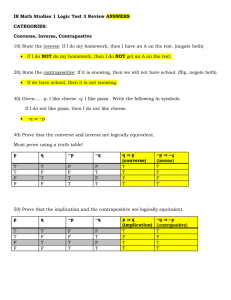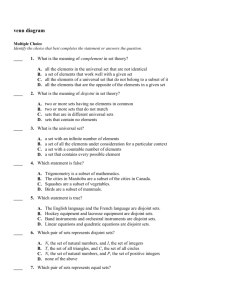6-2 - Castro Valley High School
advertisement
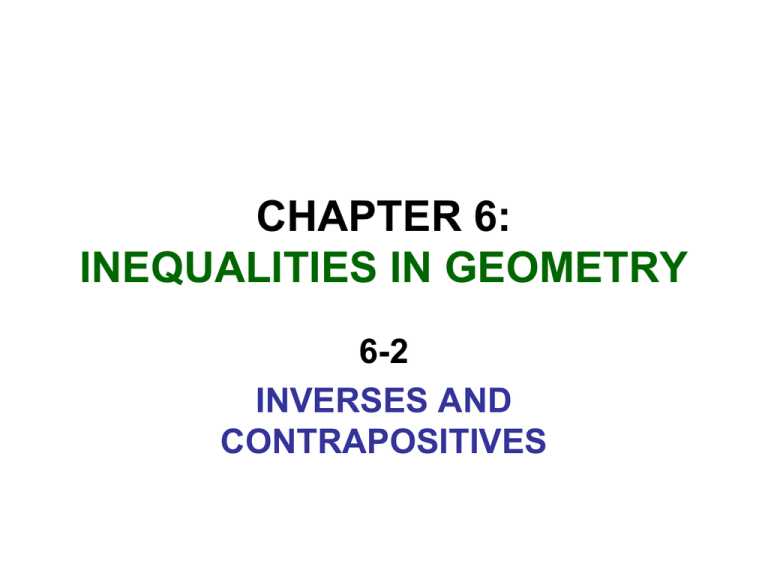
CHAPTER 6: INEQUALITIES IN GEOMETRY 6-2 INVERSES AND CONTRAPOSITIVES IF-THEN STATEMENTS Recall that we have previously learned the concept of if-then statements where a hypothesis is followed by a conclusion. We learned that the general form of an ifthen statement was structured like: If p, then q. INVERSE An inverse is a conditional that is related to an if-then statement: Statement: If p, then q. Inverse: If not p, then not q. INVERSE Example: Statement: If a person is mean, then they are a fighter. Inverse: If a person is not mean, then they are not a fighter. CONTRAPOSITIVE A contrapositive is a condition that is linked to the inverse of a statement. Inverse: If not p, then not q. Contrapositive: If not q, then not p. CONTRAPOSITIVE Example: Inverse: If a person is not mean, then they are not a fighter. Contrapositive: If a person is not a fighter, then they are not mean. EXAMPLE Write (a) the inverse and (b) the contrapositive of the conditional. 1. If a parallelogram is a square, then it is a rectangle. a. If a parallelogram is not a square, then it is not a rectangle. b. If a parallelogram is not a rectangle, then it is not a square. EXAMPLE Write (a) the inverse and (b) the contrapositive for the conditional. a. If it is not snowing, then the game is not cancelled. 2. If it is snowing, then the game is canceled. b. If the game is not cancelled, then it is not snowing. EXAMPLE Write (a) the inverse and a. If 2x + 1 ≤ 15, then x ≤ (b) the contrapositive for 7. the conditional. 3. If 2x + 1 > 15, then x > 7 b. If x ≤ 7, then 2x + 1 ≤ 15. CLASSWORK/HOMEWORK Classwork • Pg. 210, Classroom Exercises 1-12 Homework • Pgs. 210-212, Written Exercises 2-20 even
